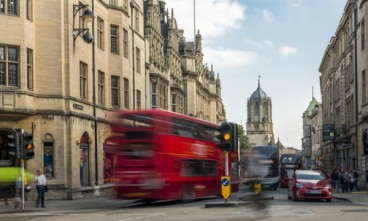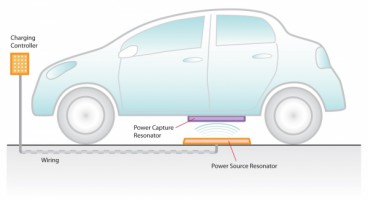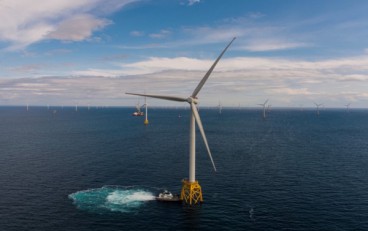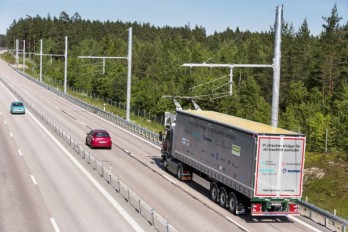UK’s decarbonized transport project initiates

The United Kingdom Department for Transport (DfT) has developed a thorough plan to completely decarbonize transport in the future.
A report about the project was published on March 26, 2020. When it comes to carbon neutrality, transport has a significant impact factor. Nevertheless, the report clarifies that all the economic sectors will need to make substantial changes in order to tackle the climate change issue and mitigate their environmental footprint. The Government's plan is to reach net-zero carbon dioxide emissions in the transportation industry within the next 20 years.
"The Transport Decarbonization Plan (TDP) will set out in detail what government, business and society will need to do to deliver the significant emissions reduction needed across all modes of transport, putting us on a pathway to achieving carbon budgets and net zero emissions across every single mode of transport by 2050," the reports mentions.
During the past years, UK focused on introducing electric vehicle technology to replace fossil fuels in transport. Incorporating more and more electric vehicles to achieve carbon neutrality is a matter of high importance. In February 2020, the government announced that diesel and petrol cars will be banned by 2035.
It is certain that this transition will result in an increased need for electric power, but officials ensure that there are plans to tackle the demand. Infrastructure associated with electric vehicles (e.g. charging stations) will also be developed. There are currently 21,000 public chargers in the UK, however, estimations predict that 10 times more chargers will need to be installed in the cities and 3,500 rapid charging stations in highways.
Regarding railways, the report indicates that trains have already reduced their environmental footprint while new technology is constantly evolving. Nevertheless, the Government requested the rail industry to introduce a plan in order to remove all the diesel-powered trains by 2040. The report suggests that electrifying the railway network is crucial to achieve carbon neutrality. "We have delivered over 1,000 single track miles of electrification since 2010. Most passenger journeys are made on electric trains. We continue to expand the electrified rail network...".
Officials stated that during this unfortunate period triggered by the coronavirus outburst, transportations have been significantly mitigated. Therefore, the carbon emissions have been temporarily reduced and people have the opportunity to witness a future decarbonized environment.
Sources: Forbes, Infrastructure-Intelligence, Railwaygazette
Sources: Forbes, Infrastructure-Intelligence, Railwaygazette
Want to read more like this story?

European cities lead the way to sustainable transport
May, 09, 2017 | NewsOslo, London and Amsterdam are closer to achieving completely green transport Oslo, London and Am...

17% carbon emissions reduction during COVID-19 lockdown
May, 19, 2020 | NewsAccording to a new study, global carbon emissions have been reduced by 17% during the lockdown follo...
The prospects for carbon-neutral buildings
Oct, 27, 2023 | NewsIn the United Kingdom, buildings account for 33% of greenhouse gas emissions and 40% of global ener...

High-speed rail project begins in United Kingdom
Sep, 04, 2020 | NewsConstruction works began in Britain’s new high-speed railway. The works on the high-speed 2...

Oxford intends to introduce the world’s first Zero Emission Zone by 2035
Oct, 20, 2017 | NewsThe measures come as a response to the high levels of NO2 in the city’s center The measures c...

World's first electric road to be constructed in Sweden
Apr, 16, 2019 | NewsThe world's first electric roadway that will utilize wireless vehicle charging technology will be co...

United Kingdom to power all residences by wind farms in the following decade
Oct, 05, 2020 | NewsThe government of the United Kingdom announced that wind farms can power all its residences by 2030....

World’s first electric highway for trucks has opened in Sweden
Jul, 10, 2016 | NewsIt can power trucks on the go using overhead wires It can power trucks on the go using overhead w...

Norway aims to achieve carbon neutrality by 2030, twenty years ahead of schedule
Aug, 19, 2016 | NewsThe country’s gesture is more than welcome, although there is a lot of skepticism regarding it...
Trending

Vertical gardens in Mexico City to combat pollution

Saudi Park Closed After 360 Big Pendulum Ride Crashes to Ground, 23 injured

Characteristics of Load Bearing Masonry Construction

Taipei 101’s impressive tuned mass damper

Dutch greenhouses have revolutionized modern farming

Federal court rules Biden’s offshore drilling ban unlawful


